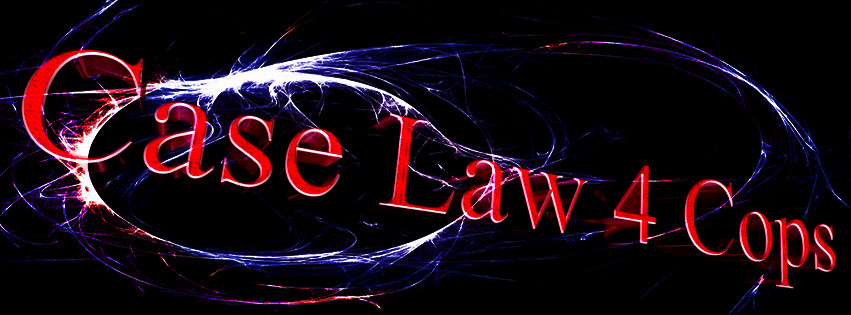Click on the case titles to link to the full case decision.
Boyd v. U S, 116 U.S. 616 (1886)-"The seizure of stolen goods is authorized by the common law; and the seizure of goods forfeited for a breach of the revenue laws, or concealed to avoid the duties payable on them, has been authorized by English statutes for at least two centuries past;3 and the like seizures have been authorized by our own revenue acts from the commencement of the government. The first statute passed by congress to regulate the collection of duties, the act of July 31, 1789, (1 St. 43,) contains provisions to this effect. As this act was passed by the same congress which proposed for adoption the original amendments to the constitution, it is clear that the members of that body did not regard searches and seizures of this kind as 'unreasonable,' and they are not embraced within the prohibition of the (Fourth) amendment."
Carroll v. U.S., 267 U.S. 132 (1925)-"It would be intolerable and unreasonable if a prohibition agent were authorized to stop every automobile on the chance of finding liquor and thus subject all persons lawfully using the highways to the inconvenience and indignity of such a search. Travellers [sic] may be so stopped in crossing an international boundary because of national self protection reasonably requiring one entering the country to identify himself as entitled to come in, and his belongings as effects which may be lawfully brought in. But those lawfully within the country, entitled to use the public highways, have a right to free passage without interruption or search unless there is [413 U.S. 266, 275] known to a competent official authorized to search, probable cause for believing that their vehicles are carrying contraband or illegal merchandise."
Almeida-Sanchez v. US, 413 U.S. 266 (1973)-The search of a vehicle stopped on traffic by a border agent 25 miles from the border without probable cause or consent cannot be justified as a border search.
Mason v. US, 414 U.S. 941 (1973)-Warrantless border searches do not extend to body cavity searches. These type of searches require a search warrant.
US v. Ramsey, 431 U. S. 606 (1977)-“The inclusion of international mail within the border search exception does not represent any "extension" of that exception. The exception is grounded in the recognized right of the sovereign to control, subject to substantive limitations imposed by the Constitution, who and what may enter the country, and no different constitutional standards should apply simply because the envelopes were mailed, not carried. The critical fact being that the envelopes cross the border and enter the country, not that they are brought in by one mode of transportation, rather than another. It is their entry into the country from without it that makes a resulting search "reasonable."
US v. Montoya De Hernandez, 473 U. S. 531 (1985)-The case involves alimentary canal smuggling at the border. When a woman was contacted and questioned after arriving on an international flight, the agents developed reasonable suspicion she was smuggling drugs in a body cavity. They gave her a choice of an x-ray or bowl movement. She would not cooperate on either one. 16 hrs later the agents got a court order. She was examined and 88 cocaine filled balloons were found during a rectal exam.
Held: The detention of a traveler at the border, beyond the scope of a routine customs search and inspection, is justified at its inception if customs agents, considering all the facts surrounding the traveler and her trip, reasonably suspect that the traveler is smuggling contraband in her alimentary canal; here, the facts, and their rational inferences, known to the customs officials clearly supported a reasonable suspicion that respondent was an alimentary canal smuggler. The "reasonable suspicion" standard effects a needed balance between private and public interests when law enforcement officials must make a limited intrusion on less than probable cause. It thus fits well into situations involving alimentary canal smuggling at the border: this type of smuggling gives no external signs, and inspectors will rarely possess probable cause to arrest or search, yet governmental interests in stopping smuggling at the border are high.
Under the circumstances, respondent's detention, while long, uncomfortable, and humiliating, was not unreasonably long. Alimentary canal smuggling cannot be detected in the amount of time in which other illegal activity may be investigated through brief stops. When respondent refused an x-ray as an alternative to simply awaiting her bowel movement, the customs inspectors were left with only two practical alternatives: detain her for such time as necessary to confirm their suspicions or turn her loose into the interior of the country carrying the reasonably suspected contraband drugs. Moreover, both the length of respondent's detention and its discomfort resulted solely from the method that she chose to smuggle illicit drugs into this country. And in the presence of an articulable suspicion of alimentary canal smuggling, the customs officials were not required by the Fourth Amendment to pass respondent and her cocaine-filled balloons into the interior.
The US Supreme Court overturned the 9th Circuit Court’s ruling that said that the agents needed reasonable suspicion to search the fuel tank. It also rendered moot the previous 9th Circuit Court case United Statesv. Molina-Tarazon, 279 F.3d 709 (2002).
US v. Vergara, No. 16-15059 (11th Cir. 2018)-Vergara returned on a cruise from Cozumel, Mexico. A Border agent found that he had three cellphones. He searched one of them and found child pornography. The other phones were forensically searched. Numerous images of child pornography were found. Vergara was arrested. He fought the search because the agent did not have probable cause to search. The appellate court upheld the search. Only reasonable suspicion is required to search a phone that the border.
